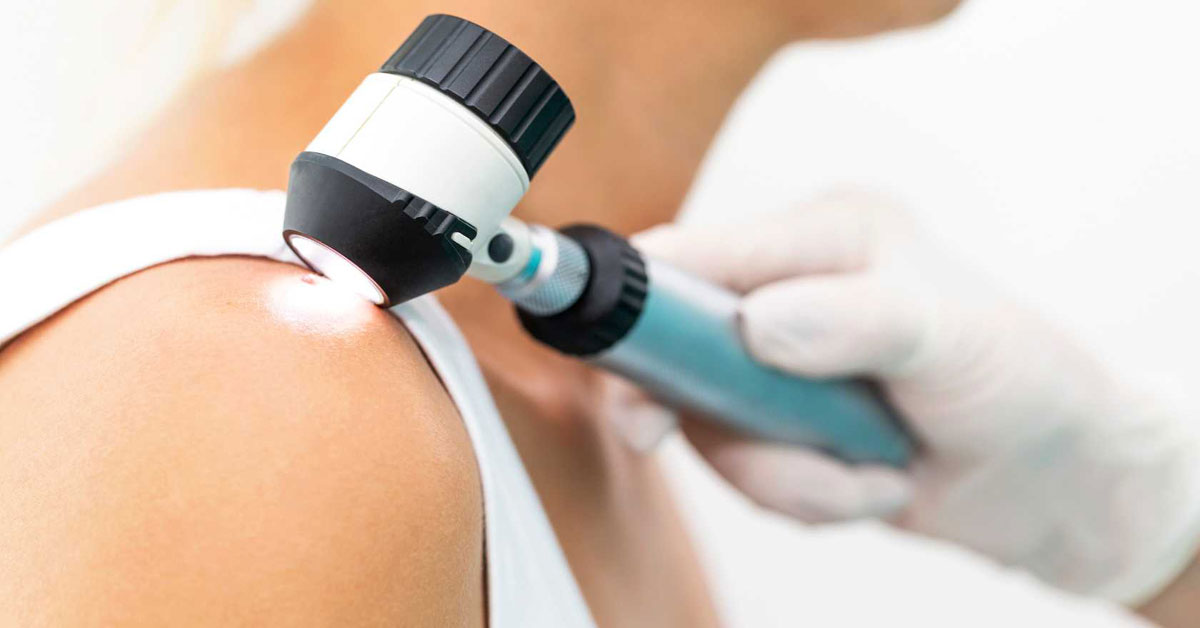Skin Disease Warning Signs of Skin Cancer You Shouldn’t Ignore
What is skin cancer?
Skin cancer results in abnormal growth of skin cells in your body. There are 3 major types of skin cancer, namely –
- Squamous cell carcinoma: occurs in the outer and middle skin layers
- Melanoma: occurs in the cells that are responsible for skin pigmentation
- Basal cell carcinoma: occurs in basal cells – a type of skin cell that creates new skin cells when older ones die.
Is skin cancer deadly?
Like most cancers, early detection is useful to ensure successful treatment. Out of the 3 types of skin cancer, Melanoma can turn lethal if not attended to immediately.
What is the cause of skin cancer?
Skin cancer is usually caused due to prolonged exposure to Ultraviolet (UV) rays – either from the sun, artificial tanning machines or other sources.
You can reduce your risk to get skin cancer using below measures:
- Wear full clothes when travelling to areas with harsh sunlight
- Use sunscreen with a rating of at least SPF 15.
- Protect your eyes from harmful sun rays using a UV protected glasses
- Limit exposure to sun rays during mornings and evenings when the sun rays are not aggressive
- Use alternatives to sourcing your vitamin D, but avoid the sun. You can have supplements or fish to compensate.
Critical symptoms across the types of skin cancer
Symptoms for Basal cell carcinoma
Basal cell carcinoma usually occurs around the face or neck – which are commonly exposed to sun-produced UV rays.
- Cancer white spots on the skin
- Small bumps on the skin
- Loss of color on the skin
- Swollen blood vessels
- Pink growth along with raised edges
Treatment options for Basal cell carcinoma
A doctor usually suggests the removal of cancerous cells via surgical excision, while ensuring the surrounding healthy cells remain. Other methods include Mohs micrographic surgery and cryosurgery.
Symptoms for Squamous cell carcinoma
Having a sore that doesn’t easily heal is a common symptom of Squamous cell carcinoma. Other noticeable symptoms include:
- Dome-shaped firm growth of cancerous cells
- Your old scars have sores developed
- Scaly patch that is reddish
- Raised patches or wart-like sores
- Red nodules
Treatment options for Squamous cell carcinoma
Your doctor will either perform excision surgery to remove the cancerous cells or use radiation therapy. Mohs surgery tends to have a 97% success rate for first-time tumor treatments.
Symptoms for Melanoma
Melanoma skin cancer can occur anywhere across the body. Look for these symptoms for early diagnosis:
- Your existing moles start having unusual growth
- Skin darkening
- Change in mole’s color
- Bleeding
- Itchiness or pain around the affected area
Treatment options for Melanoma
Apart from surgical excision, doctors may suggest Immunotherapy, drug treatment, radiation therapy or chemotherapy to treat melanoma skin cancer. Catching it early would result in a 100% cure rate, or else it can turn fatal.
Other warning signs of skin cancer you must check for
Check for these below common signs and if found, immediately consult the doctor:
Skin cancer rash
Patches that develop in skin cancer are itchy and can cause pain if aggressively rubbed. In Melanoma, you may experience itchiness around the widening moles. But not all itchiness is a sign of skin cancer – as some may cause due to fungal growth or infections.
White spots on the skin
Patch formation is also a common sign of skin cancer. It can be white, pink or red in color depending on the type of cancer. But white spots also result due to vitiligo. Better consult a doctor to confirm if the cause is skin cancer.
Consistent itching
All types of skin cancer result in an itchy sensation due to inflammation caused. If not shown to the doctor, it can result in bleeding too due to aggressive rubbing.
Is skin cancer curable?
Yes, early-stage skin cancer is diagnosable. According to cancer.org, the five-year relative survival rate is approximately around 94% across all SEER stages. Stage–2 cancer may have chances of re-occurrence of cancerous cells, hence may require more extensive treatment. Treating Stage–3, especially Melanoma gets tricky as it may spread to lymph nodes.
Regular full-body checkups and having a good skincare routine help reduce your risks of re-occurrence of skin cancer post-treatment. If you find any of the mentioned symptoms – consult your doctor immediately to arrest the skin cancer at Stage–1 itself.


